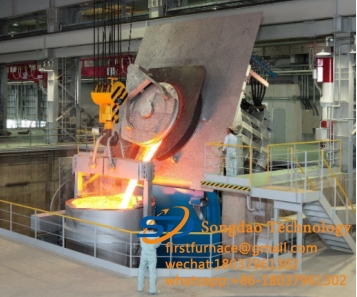- 11
- Jul
Operate the induction melting furnace safely and observe 7 good habits!
Operar o forno de fusão por indução safely and observe 7 good habits!
(1) Frequently observe the melting situation in the furnace. The charge should be added in time before the charge is completely melted. It is found that the scaffolding should be treated in time to avoid the furnace wearing out due to the sharp rise of the molten iron temperature under the shed, which exceeds the melting point of the charge (quartz sand 1704℃). To

(2) After the molten iron is melted, the slag should be removed and the temperature should be measured in time, and the molten iron should be discharged in time when it reaches the furnace temperature. To
(3) Under normal circumstances, when the crucible wall is 1/3 of the original furnace lining thickness, the furnace should be dismantled and rebuilt. To
(4) The molten iron should be emptied once a week to measure the size of the furnace lining and observe its surface condition, to grasp the actual situation of the furnace lining in time, and to deal with any problems in time. To
(5) The recarburizer is best added little by little during the process of adding the metal charge. Adding too early will adhere to the bottom of the furnace and will not easily dissolve into the molten iron. Adding too late will prolong the melting and heating time, which will not only cause delays in composition adjustment, but may also cause excessive high temperatures. The addition of ferrosilicon (increase Si), for induction melting furnaces with weak stirring power, because the high Si content in the molten iron will cause poor C increase, it is better to add Si iron later, but it will cause iron in the furnace. Delay in liquid composition analysis and adjustment. To
(6) Leaving the liquid metal in the furnace during melting can help improve the electrical efficiency of some electric furnaces and improve the power factor of the melting phase. However, these molten irons may be overheated in the furnace for a long time and endanger the quality of the metal. Therefore, the residual molten metal should account for 15% of the furnace volume. Too little molten iron will aggravate the overheating state, and too much molten iron will reduce the effective use of molten iron and increase unit energy consumption. To
(7) The thickness of the charge is preferably 200~300mm. The greater the thickness, the slower the melting.
